A record 72,500 battery energy storage systems were installed in Australian homes and businesses last year but energy industry data analyst SunWiz is predicting the market to accelerate rapidly in the coming 12 months with the federal government’s $2.3 billion (USD 1.49 billion) Cheaper Home Batteries Program to kick off next month.
From 1 July 2025, Australian households and small businesses may be eligible for about a 30% discount on the upfront cost of installing small-scale battery systems alongside new or existing rooftop solar.
SunWiz Managing Director Warwick Johnston said the introduction of the federal battery subsidy, alongside existing state-based programs, will see small-scale battery system installation volumes climb sharply.
“I’m anticipating that about 100,000 to 150,000 installations is where we might head to over the coming 12-month period,” he said. “When we get to 2026, then you know, it might be 200,000 across that calendar year while beyond that we’re heading towards 300,000 per annum.”
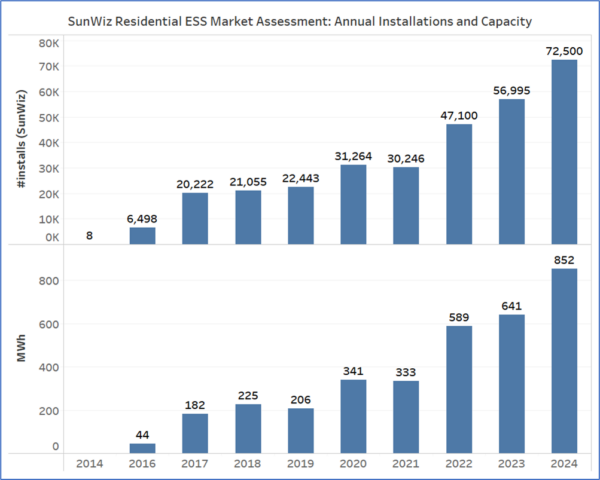
The forecasts are detailed in the latest edition of SunWiz’s Australian Battery Market Report that shows installations of residential batteries in 2024 grew by 27% when compared to the previous year’s installations.
SunWiz said a record 72,500 residential energy storage systems were installed throughout the country in 2024, delivering a combined total of 852 MWh and boosting the cumulative tally of home energy storage systems installed in Australia to more than 320,000 totalling 3.6 GWh.
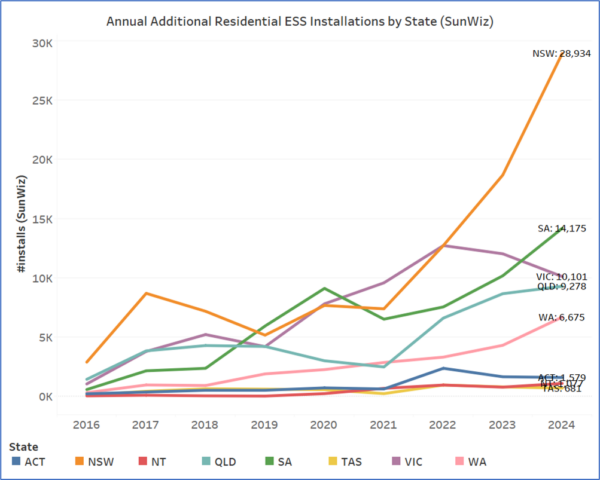
On a state-by-state basis, New South Wales (NSW) led the market with 28,900 new home batteries installed for the year, making it responsible for about 30% of all residential installations. South Australia was second with 14,000 installations, ahead of Victoria (10,100) and Queensland (9,278).
The SunWiz report shows that a “large and growing” share of batteries are being retrofitted to existing solar systems.
Australia has installed 4 million PV systems since 2008, but less than 3% of them have batteries.
Johnson said that is changing fast with 58% of installations in 2024 retrofitted to unchanged PV systems. Another 16% were coupled with systems where the PV was expanded while nearly 23% of all new rooftop solar installations included a home battery – up from 17% in 2023.
“Retrofit installations are likely to dominate for the next few years, especially as solar retailers revisit their existing customer bases,” Johnson said. “Some are already seeing this shift in their business models.”
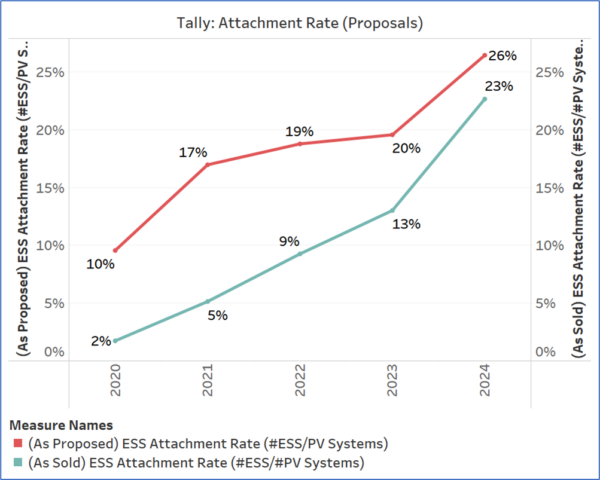
Average energy storage system capacity increased marginally in 2024, rising to 11.75 kWh, up from 11.3 kWh in 2023.
While energy capacity has remained relatively flat, battery output power has steadily increased with most batteries in the market now delivering 5 kW of continuous power. The 7 kW and 10 kW models are gaining popularity while 11 kW systems are beginning to emerge.
In addition to the growth in residential energy storage system installations, businesses installed 150 MWh of battery systems in 2024 and a record 1.9 GWh of grid-scale projects (over 10 MWh) was deployed.
SunWiz said the combined tally of 2,902 MWh makes 2024 a record year but with 25 GWh of grid-scale storage under construction, the record won’t stand for long.
For 2025, SunWiz is forecasting 8,860 MWh of grid-scale energy storage systems will be deployed, along with 1,200 MWh of residential and 600 MWh of commercial. This would represent a combined 14,800 MWh, which would again be a record year.
This content is protected by copyright and may not be reused. If you want to cooperate with us and would like to reuse some of our content, please contact: editors@pv-magazine.com.
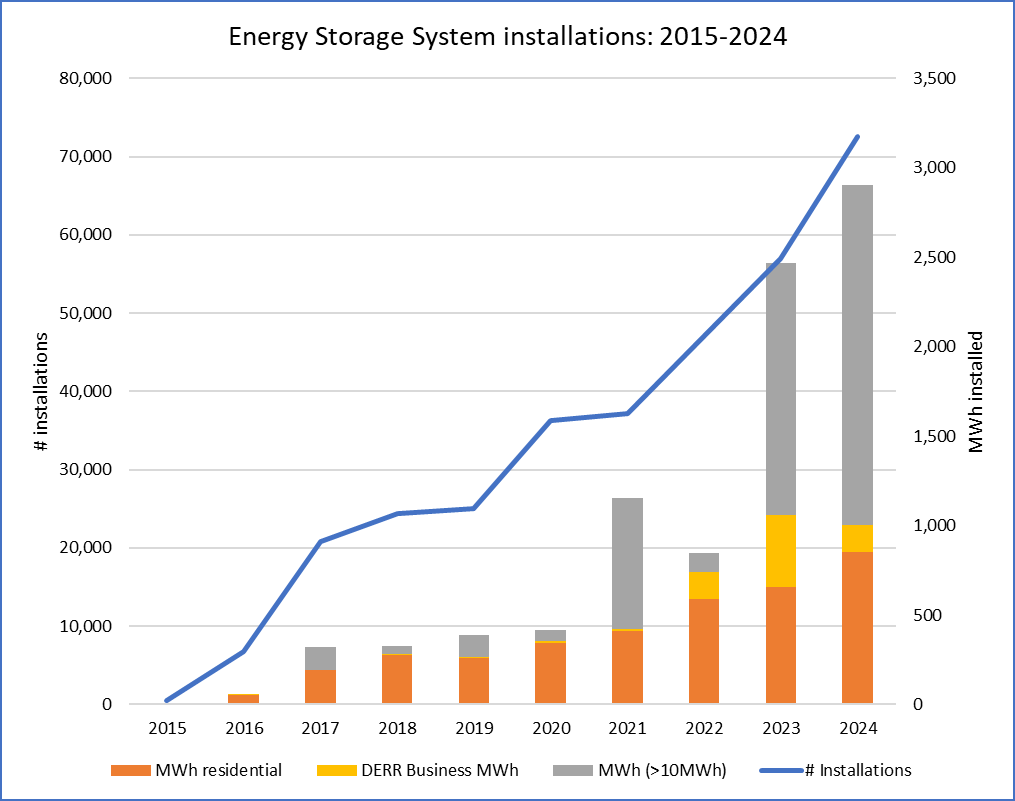
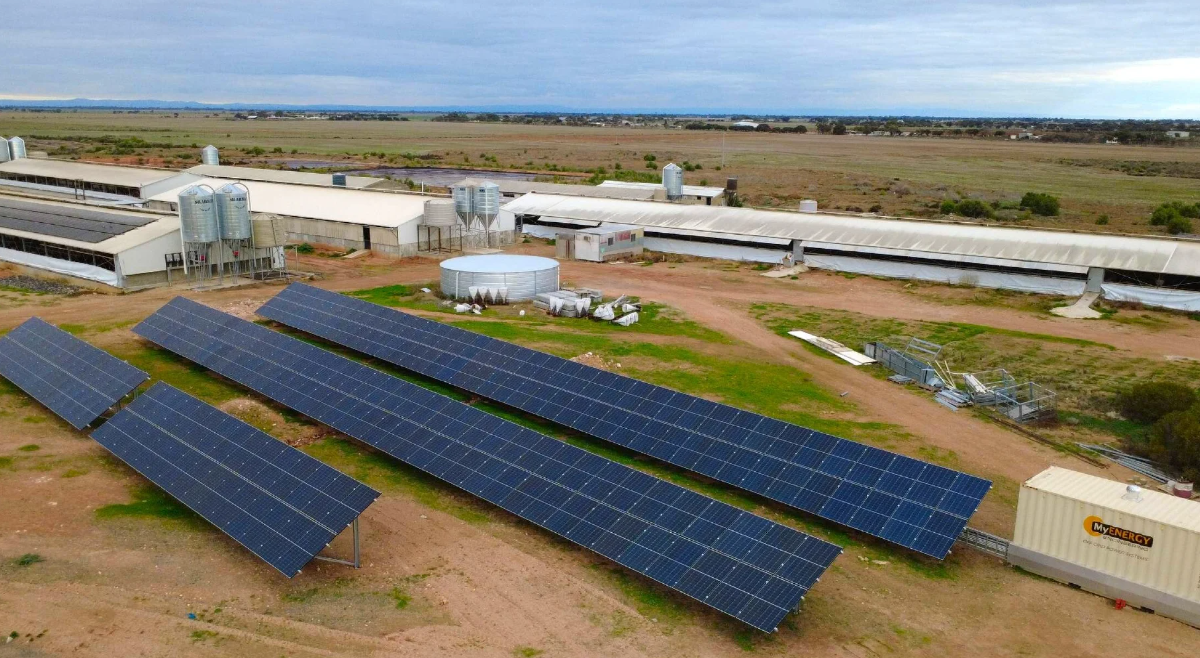


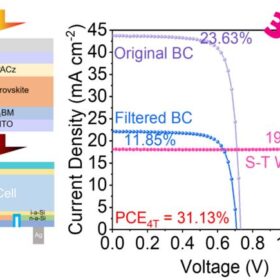



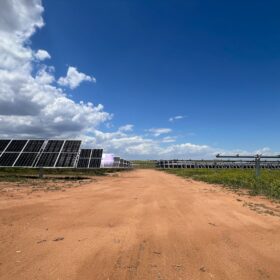
By submitting this form you agree to pv magazine using your data for the purposes of publishing your comment.
Your personal data will only be disclosed or otherwise transmitted to third parties for the purposes of spam filtering or if this is necessary for technical maintenance of the website. Any other transfer to third parties will not take place unless this is justified on the basis of applicable data protection regulations or if pv magazine is legally obliged to do so.
You may revoke this consent at any time with effect for the future, in which case your personal data will be deleted immediately. Otherwise, your data will be deleted if pv magazine has processed your request or the purpose of data storage is fulfilled.
Further information on data privacy can be found in our Data Protection Policy.